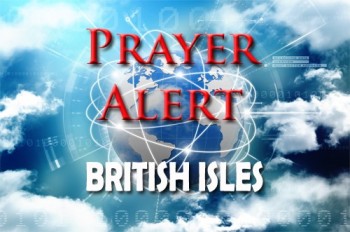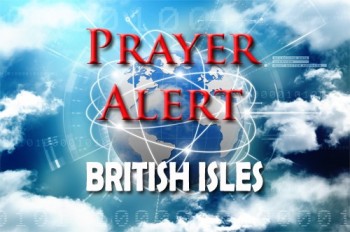Displaying items by tag: Climate change
Climate change
Professor Martin Siegert from the Grantham Institute at Imperial College London said that the last time CO2 levels were as high as they are now, there were trees at the South Pole, sea levels were 20 metres higher than they are now, and global temperatures were 3C-4C warmer. If we keep carbon emissions going at the current rate, by the end of the century we will have 1,000ppm, compared to the low 280ppm level of CO2 prior to the industrial revolution. The Bible says God created the light, land, sea, vegetation, fish, birds and every living creature and ‘saw that it was good’. The earth and everything on it reflect the wonder of God; our concern for creation should be rooted in our worship of the God who made it all.
Diet to save lives, save the planet, and feed us all?
37 experts from farming, climate change and nutrition groups across the world came together as part of the EAT-Lancet commission. They took two years to come up with their findings, now published in the Lancet. The world population is expected to reach 10 billion by 2050 and will keep on climbing. Better diet will prevent about 11 million dying from heart attacks, strokes and some cancers. The use of land for farming and forestry accounts for a quarter of global greenhouse gas emissions - substantially more than from all trains, planes and automobiles on the planet. The commission will take its findings to governments around the world and bodies such as the WHO, to see if it can bring changes to what we eat. The recommended ‘planetary health diet’ does not completely banish meat and dairy, but it requires an enormous shift in what we put on our plates. We will have to turn to foods that we now barely eat.
Politicians must make 'stark choices'
The shadow treasury minister Clive Lewis, in a newspaper interview, has said MPs must show leadership, and persuade consumers to make dramatic lifestyle changes, if devastating climate change and mass extinctions are to be averted. Cutting back on red meat and taking fewer flights are two of the ‘real, stark choices’ needed in the years ahead. Lewis said, ‘If you want your children and grandchildren to avoid food shortages, to avoid power shortages, to avoid biological degradation, biodiversity loss - if you actually want a planet that’s habitable - then we need to make some choices together, now, and some of them are about quite dramatic changes to how we live.’
Raising awareness of climate change
An artwork was unveiled in London on 11 December, to coincide with the climate change conference taking place in Poland. Centuries-old Greenland icebergs weighing between 1.5 and 6 tonnes keep melting. This installation seeks to bring the effects of climate change closer to home, putting people in direct contact with its effects. The icebergs remind us we have only twelve years to limit the worst effects of climate change, and they also represent another 10,000 blocks of ice which are falling from the same ice sheet in Greenland every single second. ‘People need to face the tangible consequences of their actions’, states the artist on his website. Meanwhile NASA has detected new signs of large glaciers in East Antarctica losing ice. This area has long been considered more stable than West Antarctica.
Poland: climate change conference
Participants at the UN climate talks in Poland have discussed how they will keep promises made in 2015 to reduce their climate footprint by 2020. Global warming occurs when carbon dioxide and methane emissions increase, trapping solar energy. As more gases enter the atmosphere, earth’s temperature rises rise; changing the timing and length of seasons and the amount and frequency of rainfall - rising sea levels, flooding, droughts and a range of ecosystem changes affecting life on earth. Two years ago, research found (see) that widespread adoption of vegetarian diets would cut food-related emissions by 63%. There are 3.6 billion sheep, cattle, goats and buffalo on the planet, 50% more than fifty years ago. Methane from their digestive systems is the single biggest human-related source of greenhouse gas. This is a great concern to the livestock industry worldwide. See also
Bishop challenges Government on climate change
Following a report by a UN panel (see article ‘New UN report on climate change’ in world section), the Bishop of Salisbury said that the evidence shows that climate change risks are now critical. Ours is the first generation to know and understand this, and probably the last to be able to do something meaningful towards climate justice. ‘We have a narrow window now to act if we are to protect God’s creation for generations to come.’ He challenged the Government to lead in this change. ‘Building on the ten-year anniversary of the Climate Change Act, an ambitious UK Government would seek to be a world leader by committing to a target of net zero emissions by 2050.’ Christian Aid reported recently that major cities in the world including Houston, Shanghai, Jakarta, and London are in danger of being flooded if sea levels continue to rise at the current rate.
New UN report on climate change
Following the remarks to the UN about climate change by Dominica’s foreign minister (see https://www.prayer-alert.net/worldwide-pa-site/item/11038-un-assembly-climate-change-a-global-responsibility), on 7 October a UN intergovernmental panel added to that warning by stating that preventing an extra single degree of heat could make a life-or-death difference in the next few decades for multitudes of people and ecosystems on this fast-warming planet. It detailed how weather, health and ecosystems would be in better shape if the world’s leaders limited future human-caused warming to half a degree, instead of the Paris-agreed goal of 1 degree. Meeting the more ambitious goal requires immediate cuts in emissions of heat-trapping gases and dramatic changes in the energy field. The panel said it is technically possible, but saw little chance of the needed adjustments being made by every nation. See also the article ‘Bishop challenges Government on climate change’ in the UK section.
UN assembly: climate change a ‘global responsibility’
The foreign minister of Dominica, Francine Baron, addressing the UN General Assembly on climate change, stressed that it is a global responsibility. Ms Baron noted that the global community has neither implemented plans for the 2015 Paris commitments nor mobilised the agreed $100 billion annually to assist the most vulnerable against harmful climate change effects. ‘While we have failed to live up to these commitments, Arctic ice shelves continue to melt at an alarming rate, oceans continue to get warmer, hurricanes and storms continue to develop and threaten our countries, drought becomes more severe, and flooding more pronounced.’ Last year Hurricane Maria brought Dominica to its knees. Immediately afterwards, ‘our people raised their battered and wounded selves, and began the daunting task of search and rescue, clearing roadways and moved into rebuilding mode.’ The cost of rebuilding a nation is far more than a small country like Dominica can meet single-handedly.
Global: ensuring climate funds reach those in need
As climate change creates huge ecological and economic damage, more and more money is being given to at-risk countries to help them prevent it and adapt to its effects. But these grants can be diverted into private bank accounts and vanity projects. Senior staff at Kenya’s geothermal energy company went on compulsory leave after trying to embezzle US$19 million, and a Bangladesh fishing community cannot reach their cyclone shelter that was built on the other side of a river which isn’t crossable during bad weather. The contractor built the shelter next to his own house. Also 52 Maldivian families were relocated from islands vulnerable to erosion and sea surges. The government raised funds to house them. Construction never began; they were still homeless eight years after the relocation. Transparency International works to safeguard climate change funding from corruption, by monitoring and exposing corruption risks and supporting communities.
Arctic Resilience Forum
Last week it was reported that the Arctic Sea is breaking up for the first time on record, and we prayed for nations to acknowledge climate change and seek ways to turn it around. The acceleration of climate change has greater impact on the Arctic region than elsewhere, posing serious threats to the sensitive environment and those who depend on it. Good cooperation is needed between researchers, public authorities, companies, and Arctic inhabitants. Pray for the adoption of a new kind of climate-resilient thinking. Further development is needed in flood warning systems and dam safety. In response to these needs, and as part of its 2017-2019 chairmanship of the Arctic Council, Finland will be hosting the first Arctic Resilience Forum on 10-11 September 2018.









